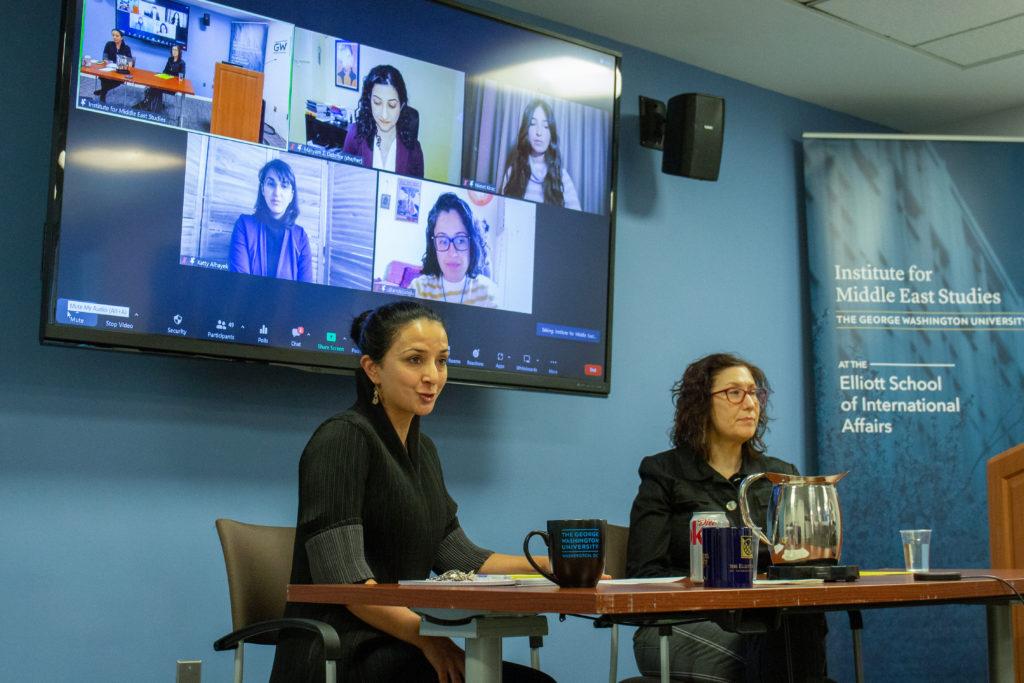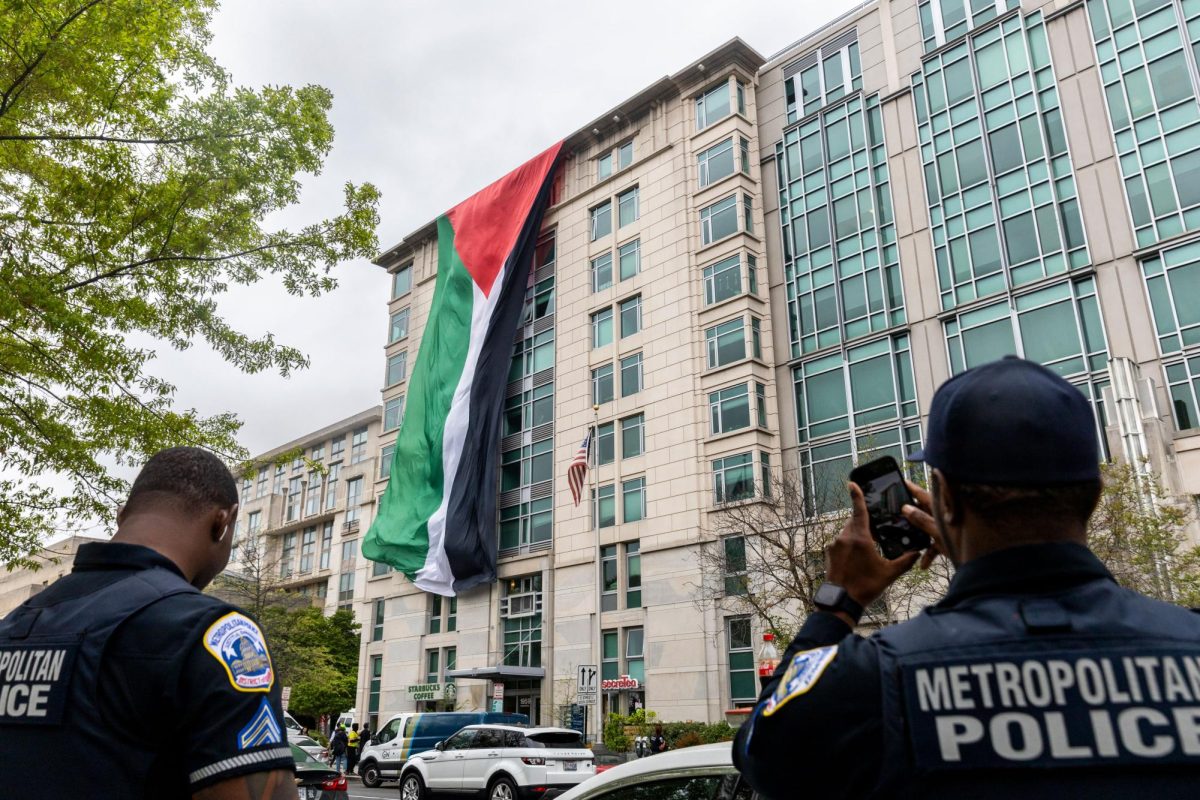A panel of experts on Wednesday discussed the obstacles to providing Turkey and Syria with humanitarian relief efforts following a devastating earthquake that struck the region earlier this month.
The teach-in, a hybrid event co-sponsored by GW’s Institute for Middle East Studies and the Humanitarian Action Initiative in the Elliott School of International Affairs and moderated by Attiya Ahmad, the interim director of the Institute for Middle East Studies, featured a discussion from five panelists with expertise in humanitarian relief and Middle Eastern affairs. The speakers said Middle Eastern conflict and geopolitical tensions made it challenging for officials to provide Turkey and Syria with sufficient aid after the mass destruction caused by the earthquake.
The earthquake, which occurred earlier this month, displaced millions and killed at least 47,000 people, according to reports. While relief efforts are ongoing, they are being disrupted by the Syrian regime blocking aid to opposition-controlled regions as a result of the ongoing Syrian Civil War, according to experts.
Nimet Kıraç, a GW alumna and freelance journalist in Turkey, said she has never seen anything like the destruction the earthquake caused, which she compared to the effects of a nuclear bomb because “everything is gone.”
“Even the people who will survive the quake, they don’t know what awaits them,” Kıraç said.
Kıraç said the Turkish government is now “under fire” for granting amnesty that forgave shoddily built residences in a 2018 government program.
Maryam Deloffre, the director of the Humanitarian Action Initiative at GW, said conflict between the Syrian regime and anti-regime opposition groups caused a lesser response in Northwest Syria than in Turkey, like the lack of aid in the form of rescue equipment in Syrian communities affected by the earthquake. She said humanitarian law generally requires the consent of the nation to provide aid, but stipulates that it cannot be arbitrarily withheld.
“Aid access to this area in northwest Syria has long been impeded and used as a political weapon by the Syrian regime and its allies,” Deloffre said.
Katty Alhayek, an assistant professor in the School of Professional Communication at The Creative School at Toronto Metropolitan University, said the Syrian population affected by the earthquake “experienced crisis on top of crisis on top of crisis” in the wake of economic and political destruction in recent years. She said crippling inflation, political conflicts in neighboring countries like Lebanon and the Syrian refugee crisis caused mass displacement even before the natural disaster.
Dilan Okcuoglu, a non-resident visiting fellow at the City University of New York’s Middle East and Middle Eastern American Centre, said even though much of the conversation surrounding the situation in Turkey and Syria is focused on supplying humanitarian aid, the historical politics of the region will continue to influence who gets aid and where.
Ilana Feldman, a professor of anthropology, history and international affairs at GW, said the “short attention span of the global publics and donors” will affect humanitarian relief efforts to Turkey and Syria, which she said is a “process that will not resolve itself immediately or quickly.”
“From the very outset, there is a very unequal attention that circumstances can get, in terms of capturing a humanitarian public,” Feldman said.











